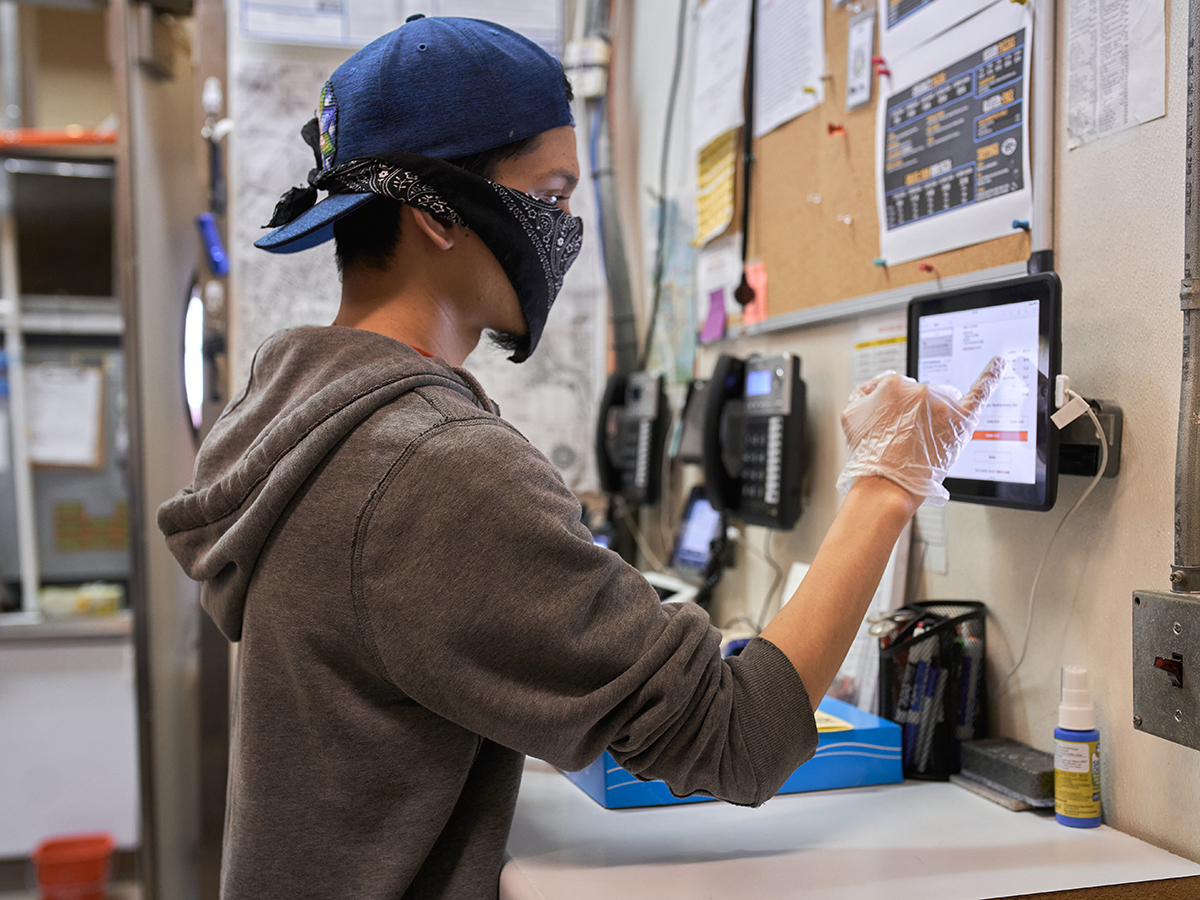As news about the novel coronavirus developed and safety measures escalated, most businesses were forced to close their doors. Only businesses deemed essential are now allowed to stay open; although that definition differs from state to state. In California this includes medical, warehouse, food service, transportation, emergency services and other community-based personnel. Although the services these people provide have been deemed essential by the government, the corporations that these workers are employed by are not treating them accordingly.
Essential workers risk their health simply by clocking in. Ultimately, corporations will put profit over their workers’ health. It is the government’s duty to protect these essential workers by allowing the U.S. Occupational Safety and Health Administration (OSHA) to have a greater presence and by creating legislation that will enforce a standard financial and health directive aimed at protecting workers that all essential businesses must follow.
Corporations are not doing enough to protect their employees and in some cases even seem to be ignoring conditions that could further spread COVID-19. In a meatpacking plant in Georgia, no alterations were made to working practices to implement social distancing, which the Centers for Disease Control and Prevention (CDC) has called “one of the best tools we have to avoid being exposed to this virus and slowing its spread.” Despite this directive, dozens of workers in that Georgia plant were still required to eat and work in small, crowded spaces. Worse, workers were not allowed to wear face masks they had brought from home and the nurse’s station at the plant did not have any masks to distribute.
This lack of precaution seems to be the case in virtually every essential business. Fast food workers in an Orlando airport filed a complaint against their employer for failing to offer hot water to wash their hands. Grocery store clerks and frontline medical workers are dying because of the constant risk and the lack of access to protective gear. UCR closed its doors before my retail job did the same. Before we closed, our “protection” consisted of a bottle of hand sanitizer.
My mom, who works at a supermarket, wasn’t as lucky. Due to the panic-induced demand for groceries, her employer actually increased her hours. Her protection was a small square of plastic that would separate her from customers, who usually stand two feet away from her during transactions. It wasn’t until recently that her employer and other stores have required that all customers and staff wear face masks and gloves. Expecting corporations to put the well-being of their employees over profit is ludicrous — we cannot depend on the good will of corporations, because they will fail us every single time.
Unfortunately, there is no government agency that can check these corporations in any substantial way. OSHA and the CDC have issued a series of directives that roll back safety standards and exclude non-health care workers from government protection. On April 13, they announced that they would not formally handle complaints from essential workers outside of the healthcare sector. Considering that about 27% of complaints filed with OSHA are from the healthcare industry while 72% come from workers in retail and manufacturing sectors, this is a gross disregard of millions of essential workers.
The government should be working toward establishing a model that protects all essential workers, regardless of what sector they are a part of. Starbucks’ revised policy could be a good starting point; the coffee giant is offering catastrophe pay, 20 free sessions with a mental health provider and 30 days of paid time off. Stores across the nation have implemented similar policies, but Starbucks’ is a comprehensive plan that acknowledges the financial and personal impact the pandemic is having on their employees and aims to address them.
Federal and state governments should make it a priority to establish a plan similar to Starbucks’ so that essential workers are not forced to pick between their health and financial stability. Furthermore, OSHA and the CDC should establish a larger presence to keep employers accountable. The Trump administration has excluded them from the White House Coronavirus Task Force and made it difficult to issue citations, which allow employers to take advantage of loopholes to avoid following CDC guidelines. Returning to the role that OSHA and the CDC inhabited during prior epidemics would ensure that employees won’t have to suffer through a lack of protections without repercussion to their employers.
The government should make it their prime concern to reduce the uncertainty and fear of the pandemic by establishing financial and health protections for its citizens, especially their most impacted. We know corporations only care about the bottom line, which is why federal and state institutions and government agencies have a duty to step in and protect its people.








